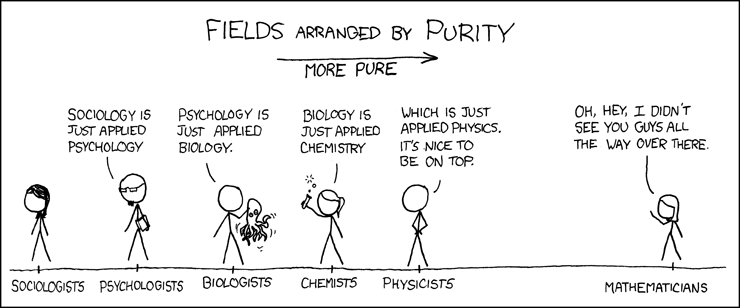smcder
Paranormal Adept
This just popped in my Philosophical Overdose feed
Structural Realism (Stanford Encyclopedia of Philosophy)
"Scientific realism is the view that we ought to believe in the unobservable entities posited by our most successful scientific theories. It is widely held that the most powerful argument in favour of scientific realism is the no-miracles argument, according to which the success of science would be miraculous if scientific theories were not at least approximately true descriptions of the world."
Naïve realism - Wikipedia
"It is not uncommon to think of naïve realism as distinct from scientific realism, which states that the universe contains just those properties that feature in a scientific description of it, not properties like colour per se but merely objects that reflect certain wavelengths owing to their microscopic surface texture. This lack of supervenience of experience on the physical world has influenced many thinkers to reject naïve realism as a physical theory.[12]
One should add, however, that naïve realism does not claim that reality is only what we see, hear etc.. Likewise, scientific realism does not claim that reality is only what can be described by fundamental physics. It follows that the relevant distinction to make is not between naïve and scientific realism but between direct and indirect realism."
Structural Realism (Stanford Encyclopedia of Philosophy)
"Scientific realism is the view that we ought to believe in the unobservable entities posited by our most successful scientific theories. It is widely held that the most powerful argument in favour of scientific realism is the no-miracles argument, according to which the success of science would be miraculous if scientific theories were not at least approximately true descriptions of the world."
Naïve realism - Wikipedia
"It is not uncommon to think of naïve realism as distinct from scientific realism, which states that the universe contains just those properties that feature in a scientific description of it, not properties like colour per se but merely objects that reflect certain wavelengths owing to their microscopic surface texture. This lack of supervenience of experience on the physical world has influenced many thinkers to reject naïve realism as a physical theory.[12]
One should add, however, that naïve realism does not claim that reality is only what we see, hear etc.. Likewise, scientific realism does not claim that reality is only what can be described by fundamental physics. It follows that the relevant distinction to make is not between naïve and scientific realism but between direct and indirect realism."

